Eyes in the Dark
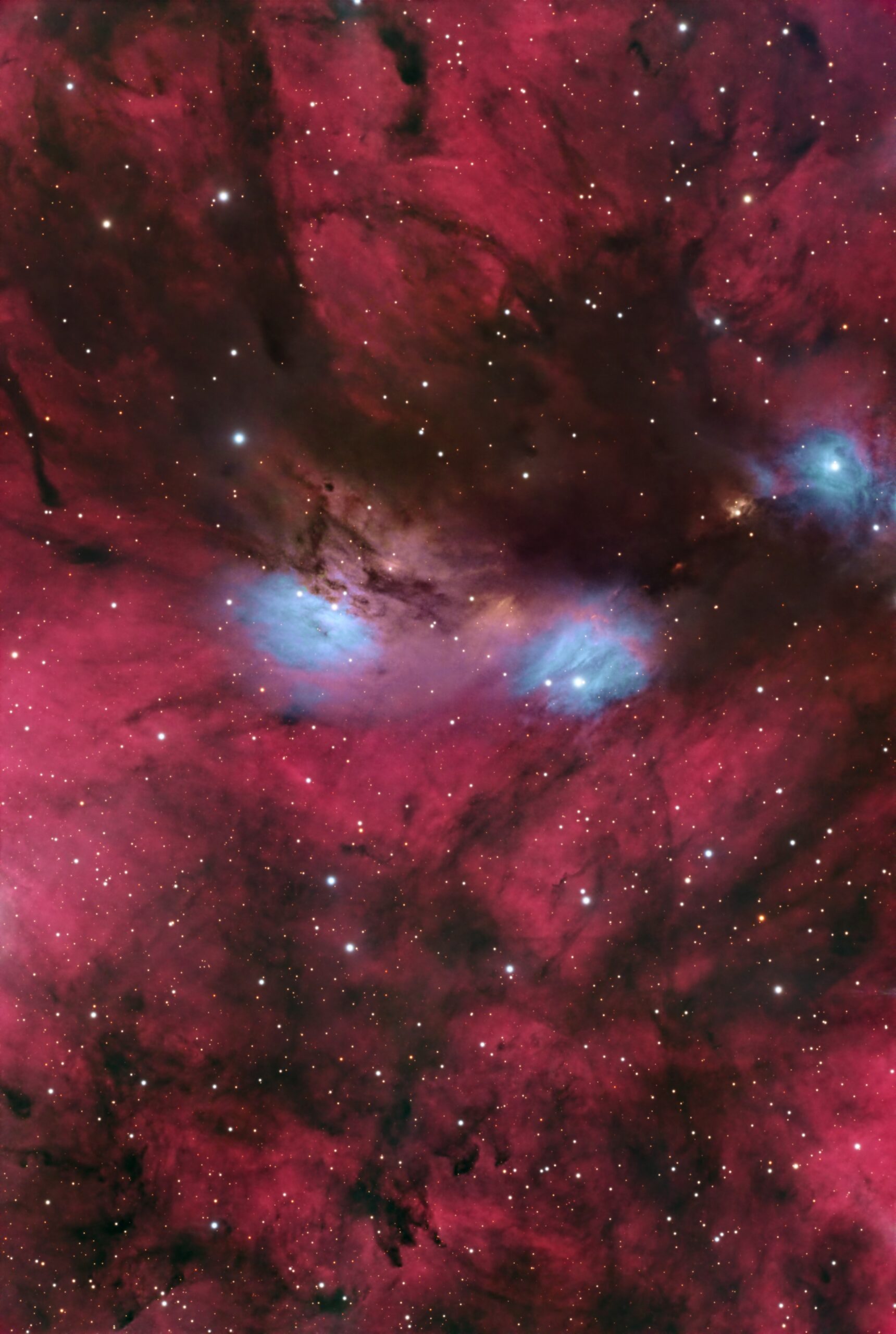 Click image for full size version
Click image for full size version
August 23, 2024
Eyes in the Dark is my name for this image. It captures the region around NGC 6914, which is the left-most blue nebula in this image. The others are vdB 132 (centre) and vdB 131 (right). Most of the glowing gas (red) and reflection nebula (blue) is about 6,000 light years away in the constellation Cygnus. NGC 6914 also has the designations LBN 274 and LBN 280.
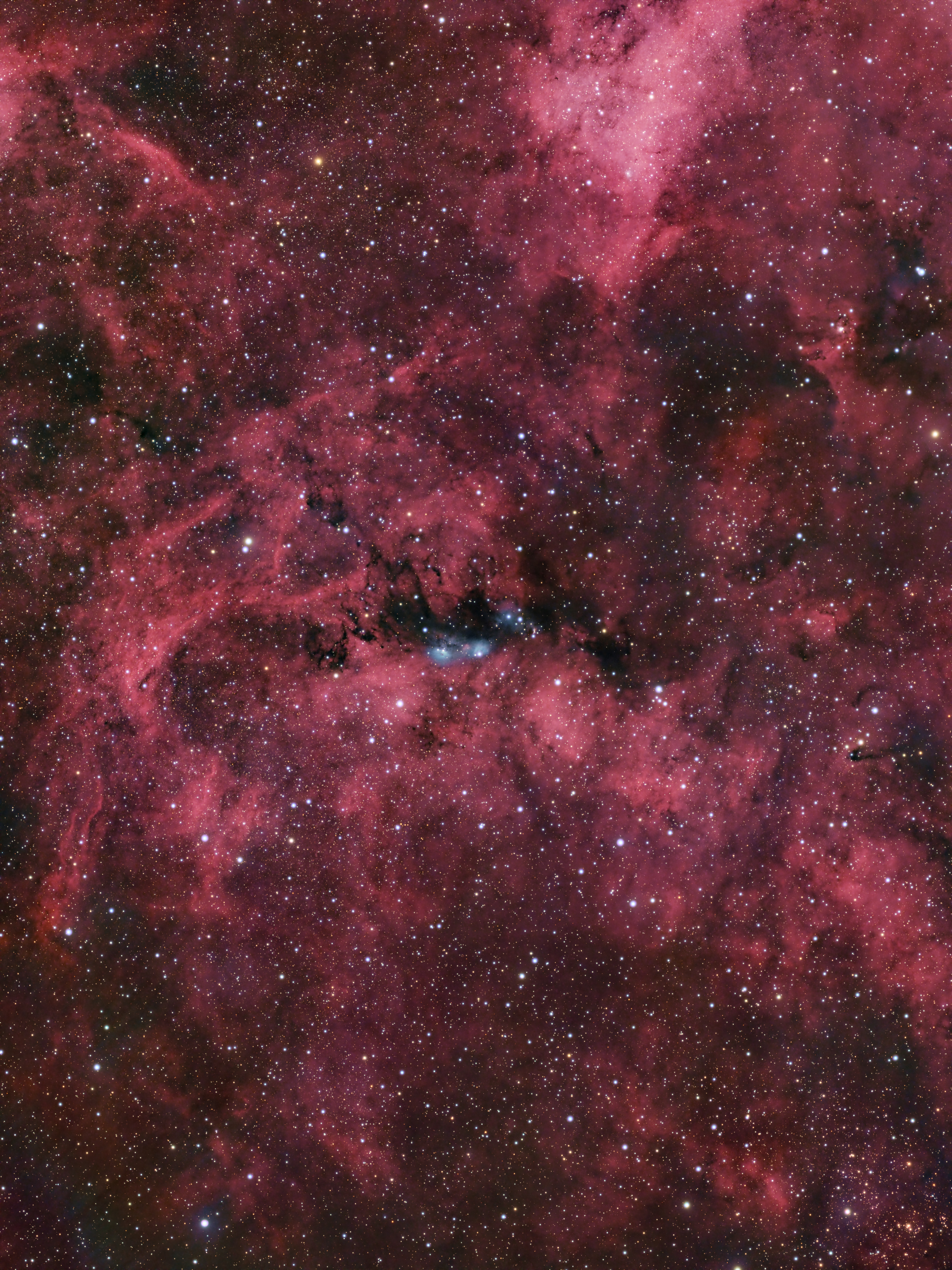 While acquiring the high-resolution image above, I also captured a wide-field image using a Takahashi FS60 CB refractor with a QHY367C Pro camera and Optolong L-Quad filter. The little Tak was riding atop the big C14.
While acquiring the high-resolution image above, I also captured a wide-field image using a Takahashi FS60 CB refractor with a QHY367C Pro camera and Optolong L-Quad filter. The little Tak was riding atop the big C14.
Tekkies:
Acquisition, focusing, and control of Paramount MX mount with N.I.N.A., TheSkyX and PHD2. Primalucelab low-profile 2″ Essato focuser and ARCO rotator. Guiding with PHD2. Equipment control with Primalucelab Eagle 4 Pro computer. Flats taken using a Primalucelab Giotto 430 mm flat panel. All pre-processing and processing in PixInsight. Acquired from my SkyShed in Guelph. Data acquired under variable moon illumination with average or better transparency and average seeing August 1-15, 2024.
Celestron 14″ EDGE HD telescope at f/11 (3,912 mm focal length) and QHY600M camera binned 2×2 with Optolong filters.
105 x 5m Red = 8hr 45m
103 x 5m Green = 8hr 35m
99 x 5m Blue = 8hr 15m
150 x 5m Ha = 12hr 30m
Total: 38hr 05m
Preprocessing: The WeightedBatchPreProcessing script was used to perform calibration, cosmetic correction, weighting, registration, local normalization, integration and Drizzle integration (1x, 0.9 drop shrink) of all frames.
RGB master: A master RGB image was made from the Red, Green and Blue masters using ChannelCombination in RGB mode.
Gradient Removal: GradientCorrection was used to remove gradients from the RGB and Ha masters.
Colour Calibration: SpectroptometricColorCalibration was used to calibrate the RGB master.
Deconvolution: BlurXterminator was applied to the two masters with Automatic psf , star sharpening set to 0.4, and non-stellar set to 0.5.
Star Removal: StarXterminator was used to remove the stars from both masters, with default settings, except Large Overlap was selected. Only the RGB stars-only image was retained.
Linear Noise Reduction: NoiseXterminator was applied to the both masters with settings Amount=0.9 and Detail=0.25
Stretching: HistogramTransformation was applied to both masters to make pleasing images. Approximate background level after stretch was 0.08 for Ha and 0.10 for RGB.
Nonlinear Processing
Addition of Ha to RGB: The NBRGBCombination script was used to add Ha to the RGB
Nonlinear Noise Reduction: NoiseXterminator was used to reduce noise in the background areas of the image with Amount=0.9 and Detail=0.15.
Re-stretch: HistogramTransformation was used to boost contrast by moving the dark point to the toe of the histogram and slightly decreasing the mid-point slider.
Contrast Enhancement: LocalHistogramEqualization was applied twice. A Contrast Limit of 1.5 and 1 iteration was used for each LHE application (scale 40, strength 0.25; scale 90, strength 0.2).
Sharpening: MultiscaleMedianTransform was applied. (Layers 2 – 4 with strengths of 0.06, 0.06, and 0.03, respectively), using a mask to select only the nebula.
Contrast, Brightness and Colour: Background and nebula brightness, contrast, hue and saturation were adjusted in several iterations using CurvesTransformation and the SelectiveColorCorrection script, with masks as required.
Stars-only steps: HistogramTransformation was applied to the RGB stars-only image. A mask was made by using ChannelExtraction to extract the luminance from the image. CurvesTransformation CIE c* slider was used to add boost colour in the stars through the star mask. A mask was made to select the largest star and CurvesTransformation was used to make it a little smaller.
Star Restoration: PixelMath expression combine(starless, stars, op_screen()) was used to combine the starless HaRGB starless image with the stars-only image.
Final Steps: Background, nebula, and star brightness, contrast, hue, and saturation were adjusted in several iterations using CurvesTransformation with masks as required. ICCProfileTransformation (sRGB IEC61966-2.1; Relative Colorimetric with black point compensation) was applied prior to saving as a jpg. The finder chart was made using the FindingChart process.

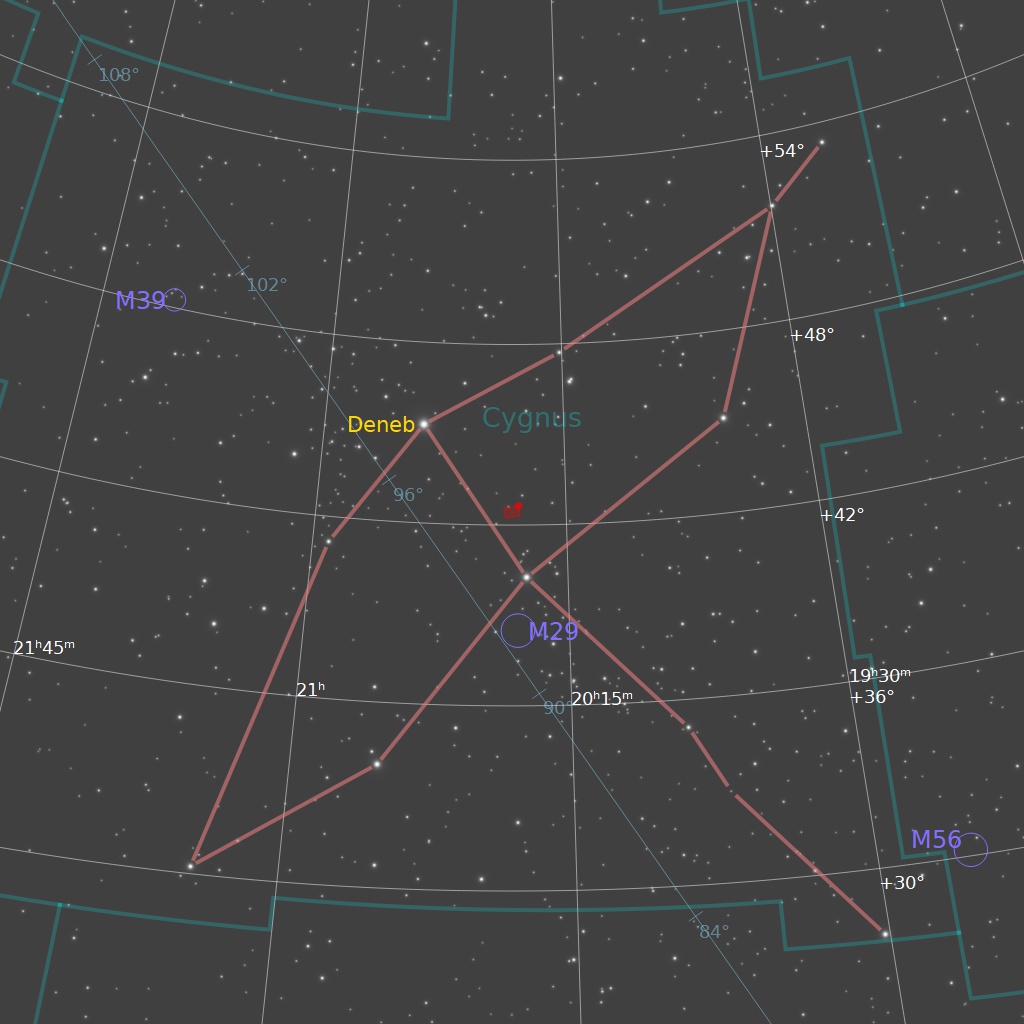
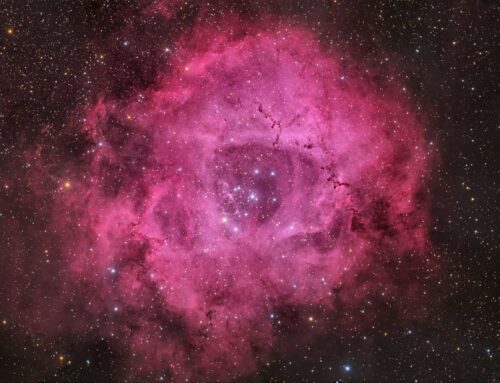
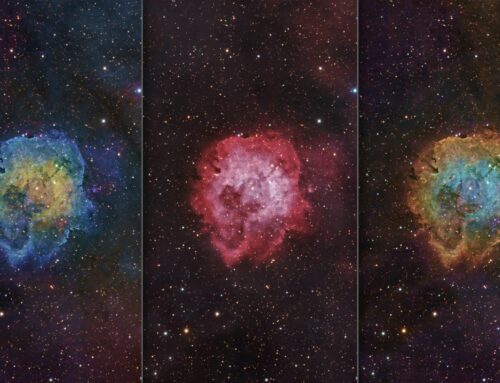
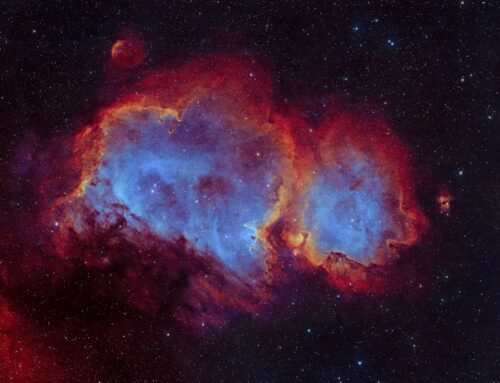

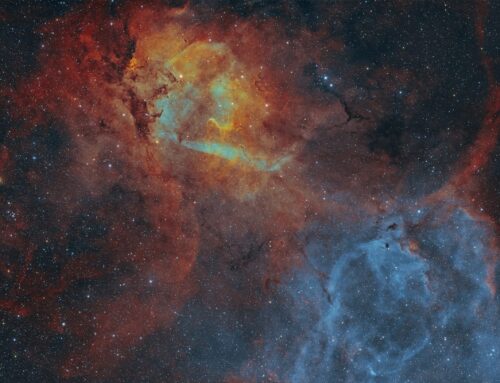
Leave A Comment